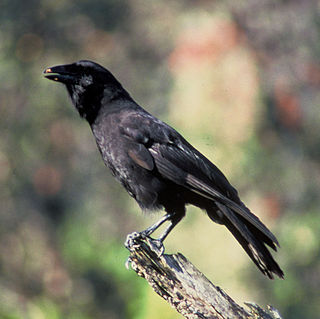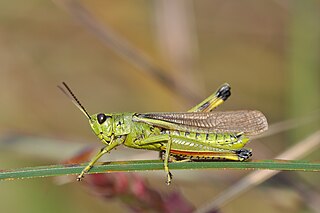
A species that is extinct in the wild (EW) is one that has been categorized by the International Union for Conservation of Nature as only consisting of living members kept in captivity or as a naturalized population outside its historic range. Classification requires exhaustive surveys conducted within the species' known habitat with consideration given to seasonality, time of day, and life cycle. Once a species is classified as EW, the only way for it to be downgraded is through reintroduction.
Cristilabrum bubulum is a species of air-breathing land snail, a terrestrial pulmonate gastropod mollusk in the family Camaenidae. This species is endemic to Australia.
Cristilabrum is a genus of air-breathing land snail, a terrestrial pulmonate gastropod mollusk in the family Camaenidae.
Cristilabrum buryillum is a species of air-breathing land snail, a terrestrial pulmonate gastropod mollusk in the family Camaenidae. This species is endemic to Australia.
Cristilabrum isolatum is a species of air-breathing land snail, a terrestrial pulmonate gastropod mollusk in the family Camaenidae. This species is endemic to Australia.
Cristilabrum monodon is a species of air-breathing land snail, a terrestrial pulmonate gastropod mollusk in the family Camaenidae. This species is endemic to Australia.
Cristilabrum primum is a species of air-breathing land snail, a terrestrial pulmonate gastropod mollusk in the family Camaenidae. This species is endemic to Australia.
Cristilabrum rectum is a species of air-breathing land snail, a terrestrial pulmonate gastropod mollusk in the family Camaenidae. This species is endemic to Australia.
Cristilabrum simplex is a species of air-breathing land snail, a terrestrial pulmonate gastropod mollusk in the family Camaenidae. This species is endemic to Australia.
Cristilabrum solitudum is a species of air-breathing land snail, a terrestrial pulmonate gastropod mollusk in the family Camaenidae. This species is endemic to Australia.
Cristilabrum spectaculum is a species of air-breathing land snail, a terrestrial pulmonate gastropod mollusk in the family Camaenidae. This species is endemic to Australia.

Stethophyma is a genus of grasshoppers in the subfamily Oedipodinae, with species found in Europe, temperate Asia through to Japan and North America.

The large marsh grasshopper is a species of grasshopper belonging to the family Acrididae.
Omophron grossum, the large round sand beetle, is a species of ground beetle in the family Carabidae. It is found in North America.

Endangered species, as classified by the International Union for Conservation of Nature (IUCN), are species which have been categorized as very likely to become extinct in their known native ranges in the near future. On the IUCN Red List, endangered is the second-most severe conservation status for wild populations in the IUCN's schema after critically endangered. In 2012, the IUCN Red List featured 3,079 animal and 2,655 plant species as endangered worldwide. The figures for 1998 were 1,102 and 1,197 respectively.
Lithothelium grossum is a species of corticolous (bark-dwelling) lichen in the family Pyrenulaceae. Found in China, it was formally described as a new species in 2006 by Dutch lichenologist André Aptroot. The type specimen was collected in the Xishuangbanna Tropical Botanical Garden at an altitude of 550 m (1,800 ft); here it was found growing on a tree trunk. Lithothelium grossum is characterized by its large hyaline (translucent) ascospores, which measure 27–37 by 12–17 μm; these are the largest of hyaline-spored species in genus Lithothelium.




